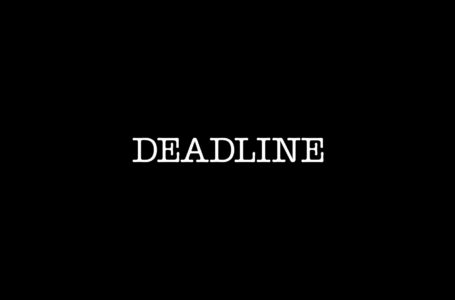In the week leading up to the Grammy Awards, it’s not the nominated artists or stacked lineup of performers who have taken center stage — but rather the Recording Academy.
The organization, which puts on the Grammys, is embroiled in a bitter battle with its recently ousted president and chief executive, Deborah Dugan.
Damning allegations of sexism, voter corruption, workplace misconduct, sexual assault and more have been thrown in the heated and complicated exchange.
Ahead of Sunday’s ceremony, which airs at 5 p.m. Pacific on CBS, here’s a breakdown of who said what and when, from Dugan’s historic appointment to her sweeping takedown of the organization that appointed her.
Aug. 1, 2019: Dugan takes control
Dugan became the Recording Academy’s first-ever female president and chief executive — perceived as a part of a much-needed rebrand after her predecessor, Neil Portnow, infamously suggested at the 2018 Grammys that women needed to “step up” if they wanted equal recognition.
Ushered in as a beacon of change, the former chief executive at AIDS nonprofit (RED) told the Los Angeles Times that she intended to build on Portnow’s attempts at diversification and champion underrepresented voices within the industry.
“All the issues that Neil has addressed have led us to a larger conversation, and that is a conversation, of course, that we need to have about women and diversity in music,” she said shortly after her appointment. “Where we take it and how we use this organization to effect positive change, that’s one of the questions I’m most excited to answer in this job.”

(Carolyn Cole / Los Angeles Times)
Jan. 16: Academy pulls Dugan amid misconduct allegations
In a move that sent shock-waves through the music industry, the academy confirmed that Dugan had been relieved of her duties and placed on “administrative leave” just 10 days before the 2020 Grammys ceremony. The reason? Someone filed a complaint accusing her of misconduct.
Although the organization initially withheld specific details about the nature of the claim, it was said to be leveled in December by “a senior female member of the Recording Academy team,” and a New York Times report categorized it vaguely as “bullying.”
“In light of concerns raised to the Recording Academy Board of Trustees, including a formal allegation of misconduct by a senior female member of the Recording Academy team, the Board has placed Recording Academy President and CEO Deborah Dugan on administrative leave, effective immediately,” read a statement from the academy provided to the Los Angeles Times.
“The Board has also retained two independent third-party investigators to conduct independent investigations of the allegations.”
Jan. 17: Complaints and threats abound
According to the New York Times, Dugan filed a complaint with the academy’s human resources department a few weeks before her exit that raised concerns about the organization’s practices, which caused her to worry “something was seriously amiss.”
Among the issues reportedly laid out in Dugan’s message were voting irregularities, financial mismanagement and “exorbitant and unnecessary” legal bills, as well as conflicts of interest involving members of the academy’s board, executive committee and outside lawyers.
After her departure, Dugan issued a threat to the academy via her attorney, quoting Portnow’s controversial 2018 Grammys speech.
“What has been reported is not nearly the story that needs to be told,” said crisis litigator Bryan Freedman in the statement. “When our ability to speak is not restrained by a 28-page contract and legal threats, we will expose what happens when you ‘step up’ at the Recording Academy, a public nonprofit.”
Several in the entertainment industry leapt to Dugan’s defense after the scuffle, including former Fox News and “Today” anchor Megyn Kelly and ex-“America’s Got Talent” judge Gabrielle Union — both of whom have dealt with highly publicized terminations of their own. All three women hired the same lawyer, Freedman, to protect them during their transitions.
“Coulda sworn this is the same board that told women to ‘step up,’” Union tweeted. “Clearly what they really meant was stand down, turn a blind eye to problems, or be fired. #DeborahDugan truly stepped up & tried to make necessary changes & was shown the door. Been there, done that, got fired too.”
Coulda sworn this is the same board that told women to “step up” Clearly what they really meant was stand down, turn a blind eye to problems, or be fired. #DeborahDugan truly stepped up & tried to make necessary changes & was shown the door. Been there, done that, got fired too. https://t.co/xwm3qUln3x
— Gabrielle Union (@itsgabrielleu) January 18, 2020
Jan. 20: They said/she said intensifies
After a brief weekend break, new details surrounding Dugan’s leave emerged, including a claim leveled by Harvey Mason Jr., academy board chairman and interim Recording Academy president and chief executive. A leaked memo from Mason accused Dugan of offering to retract her initial HR complaint and resign in exchange for a multimillion-dollar contract buyout.
“After we received the employee complaints against Ms. Dugan, she then (for the first time) made allegations against the Academy. In response, we started a separate investigation into Ms. Dugan’s allegations,” Mason’s memo read. “Ms. Dugan’s attorney then informed the Executive Committee that if Ms. Dugan was paid millions of dollars, she would ‘withdraw’ her allegations and resign from her role as CEO. … Following that communication from Ms. Dugan’s attorney, Ms. Dugan was placed on administrative leave as we complete both of these ongoing investigations.”
The Times obtained a copy on Monday of Mason’s memo to academy members regarding Dugan’s ouster, which also contended that the aforementioned employee complaint against Dugan contained “serious allegations of a ‘toxic and intolerable’ and ‘abusive and bullying’ environment created by Ms. Dugan towards the staff.”
Jan. 21: Dugan accuses academy of sexual misconduct
Following Mason’s leaked memo, Dugan fired back with some fresh allegations of her own. In a robust 44-page complaint filed with the Equal Employment Opportunity Commission five days before the Grammys, she accused entertainment lawyer Joel Katz of sexual harassment and claimed that the academy’s board of trustees knew about a previous allegation that Portnow had raped an unidentified “foreign” female performer.
In the complaint, Dugan said she was alerted to the rape allegation against Portnow at a May 2019 board meeting. She also hurled accusations of gender discrimination within the organization, calling its membership a “boys’ club.”
“Ms. Dugan was hauled into a conference room and told — for the very first time — that a foreign recording artist (and member of the Academy) had accused Mr. Portnow of raping her following a performance that she gave at Carnegie Hall,” the lawsuit read. “The news was presented to Ms. Dugan as though the Board had just learned of the allegation. … In reality, they were well aware of the allegation at the time Ms. Dugan agreed to take on the CEO position, but never told her.”
The document went on to claim that Dugan was paid “substantially less than her two male predecessors” upon her appointment as president and that the sexual assault accusation against Portnow was among “the real reasons his contract was not renewed.” Additionally, it states that then-Chairman of the Board John Poppo allegedly pressured Dugan to hire Portnow as a consultant for $750,000 after his last contract terminated on July 31, 2019.
Jan. 22: Portnow denies allegations, academy women speak out
Portnow vehemently denied the claims Dugan waged against him, dismissing them as a “diversionary tactic.”
“The allegations of rape are ludicrous, and untrue,” he said in a statement provided to The Times. “The suggestion that there was is disseminating a lie. The baseless complaint about my conduct referenced in the EEOC filing was immediately brought to the attention of the Board of Directors Executive Committee. An in-depth independent investigation by experienced and highly regarded lawyers was conducted and I was completely exonerated.”
He also added that he never demanded a $750,000 consulting fee and once again addressed the recently reignited backlash to his fateful “step up” gaffe.
“After making the ‘step up’ comment during the 2018 telecast, for which I have apologized and deeply regret the offense caused, and understanding the power of listening and lessons learned, I took action,” he continued. “I proposed and the Academy created an independent task force to review the state of diversity & inclusion across the organization. After presenting the task force plan and proposed study of the organization to the board, the group was created to implement change.”
Later that day, the four women from the academy board‘s eight-member executive committee issued a statement, also provided to The Times, defending the organization against Dugan’s complaint and touting its partnership with the newly implemented Diversity and Inclusion Task Force.
“It is deeply disturbing to us — and quite frankly, heartbreaking — to witness the firestorm against our organization that has been unleashed,” the statement read. “The Academy is keenly sensitive to any and all allegations of harassment or abuse. … We have collectively volunteered many years of service guiding and supporting this organization. We would not have taken precious time away from our families and careers if we felt that it was a ‘boys’ club.’”
And yet another statement followed from the academy’s director of administration, Claudine Little, widely believed to be the “senior female member of the Recording Academy team” who filed the December misconduct complaint against Dugan that started it all.
“Ms. Dugan’s choice to litigate in the press and spread a false narrative about the Academy and me and my colleagues is regrettable, but it is also emblematic of Ms. Dugan’s abusive and bullying conduct while she served as the Academy’s President and CEO,” Little said. “It is disappointing that Ms. Dugan hopes to leverage public opinion along gender lines and expects not to be scrutinized for her inexcusable behavior simply because she is a woman; she should be held to the same standard.”
Jan. 23: Dugan doubles down on national TV
In her first public appearance since filing her EEOC lawsuit, Dugan visited “Good Morning America” to promote her case against the academy, summarizing many of the grievances aired in the document for a national audience. Elaborating on the “boys’ club” environment, she detailed an alleged encounter with Katz, who previously served as the chair of the academy’s board of trustees.
“At the very onset — in fact, under the guise of a work dinner — I was propositioned by the [Academy’s] general counsel, an entertainment lawyer of enormous, enormous power in the industry,” she said, echoing her complaint. “Calling me ‘baby’ and saying how attractive I was and pretty I was. … I felt like I was being tested in how much would I acquiesce. I realized that that was a power-setting move.”
Flanked by lawyer Dougas Wigdor, Dugan also reflected on her brief tenure at the helm of the organization.
“I actually wanted to make change from within,” she said. “I moved across the country. I had a great job. I believe in what the Recording Academy should stand for — for artists. I was trying at each step to take a deep breath and say, ‘OK, I can make a difference. I can fix this. I can work with this team.’”
Meanwhile, on “CBS This Morning” — and later, on NBC’s “Nightly News” — Dugan and Wigdor expanded on her issues with the academy’s voting system, suggesting that the process was “rigged” and favored certain artists over others — though she didn’t name names.
“In that room, not only are there trustees that have conflict of interests on particular artists that are nominated, but, more importantly, there are even artists that are nominated that are in the room. So for me, that’s just a blatant conflict of interest,” Dugan said on CBS. “There’s a system of taking care of their own. I’ll say that it’s mostly white males that are in those rooms that make these decisions.”
Jan. 23: Academy’s head of awards and diversity task force weigh in take sides
As Dugan continued to trash the academy’s voting standards in both her complaints and on national TV, the group’s chief awards officer, Bill Freimuth, issued a statement defending the nominations process and calling Dugan’s claims “spurious.”
“It is the goal of the Recording Academy to ensure the Grammy Awards process is led in a fair and ethical manner and that voting members make their choices based solely on the artistic excellence and technical merits of eligible recordings,” he said in the statement, provided to The Times on Thursday. “Spurious allegations claiming members or committees use our process to push forward nominations for artists they have relationships with are categorically false, misleading and wrong. This process is strictly enforced with everyone involved and has no exceptions.”
Freimuth went on to break down the entire process, from the formation of its “diverse” nomination review committees to circumstantial voting restrictions. Though he conceded, “it is not unusual that some of the [committee members] … will end up with nominations from the first round” due to industry affiliations, he asserted that “there are strict rules in place to address any conflict of interest.”
Meanwhile, the academy’s own diversity task force tacitly sided with Dugan in a statement also issued Thursday, calling on academy leadership to “immediately commit themselves to real reform” and actually heed the multiple recommendations made in the task force’s 47-page report aimed at remedying what it found to be systemic lack of inclusion within the academy’s total membership, board of trustees and select committees.
“We are deeply disappointed at the level of commitment by some of the Academy’s leadership in effecting the kind of real and constructive change presented in our report,” the statement said. “We are confident that they can do better.”
Times staff writer Randy Lewis contributed to this report.





